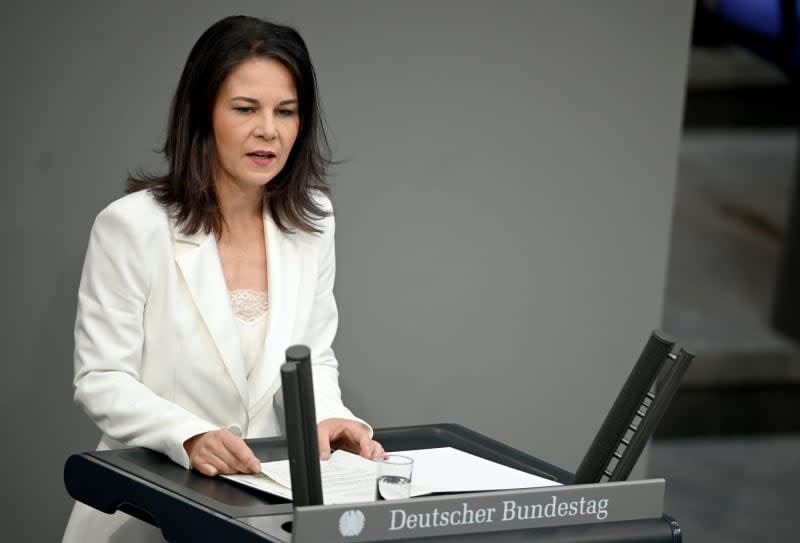Germany against working with Taliban over deporting violent offenders

- Oops!Something went wrong.Please try again later.
The German Foreign Ministry on Friday warned against cooperating with Afghanistan's Taliban rulers on deporting Afghan offenders, saying the Islamist government would seek international recognition through such a move.
"The Taliban will want to have any repatriations paid for at least through international recognition," a spokesman for Foreign Minister Annalena Baerbock said in Berlin.
"And it is a fact that the German government does not recognize the de facto Taliban government in Afghanistan, just like any other country in the world, and does not cooperate with it." There is only sporadic contact "on a technical level" in individual cases.
Following a fatal knife attack in Mannheim, in which a police officer was stabbed to death by an Afghan national, German Chancellor Olaf Scholz said he intended to allow the deportation of serious criminals to Afghanistan and Syria again. Interior Minister Nancy Faeser is currently looking into this.
The Taliban had previously shown themselves to be open to cooperation on accepting Afghan criminals and dangerous individuals.
"The Islamic Emirate of Afghanistan calls on the German authorities to settle the matter within the framework of normal consular relations and an appropriate mechanism based on a bilateral agreement," Taliban Foreign Ministry spokesman Abdul Kahar Balchi wrote on X on Friday.
Since the Taliban returned to power in Kabul in August 2021, a deportation ban for Afghans has been in place in Germany.
An Interior Ministry spokesman said deportations do not mean impunity for criminals in Germany.
"In murder cases, this means at least 10 years imprisonment in Germany as a minimum before deportation can be considered following this prison sentence."
Germany has not sent anyone back to Afghanistan since the Taliban takeover in August 2021. Even before that, the agreement was that only men - especially criminals and those deemed terrorist threats - would be forcibly returned, due to the difficult security situation.
Critics warn against talks with the Taliban, who are currently internationally isolated.
Representatives of the Green Party are against both deporting Afghans back to Afghanistan and cooperating with the Taliban.
"Every expulsion and every deportation to Afghanistan requires cooperation with this Islamist terrorist regime and thus virtually recognizes the Taliban," Germany's Commissioner for Human Rights and Green party member Luise Amtsberg told the taz newspaper in an interview published online on Friday.
Green party member of parliament Julian Pahlke described Scholz's announcement as "unrealistic" and legally unrealizable.
According to Afghanistan expert Thomas Ruttig, the co-founder of the Afghanistan Analysts Network, the Taliban could benefit from deportations by using them as an opportunity to cooperate with a Western state, which could be seen as a boost to their reputation.
The German refugee advocacy group Pro Asyl has condemned Scholz's initiative.
"International law clearly prohibits any deportations to Afghanistan and Syria," Pro Asyl's managing director Karl Kopp told the Augsburger Allgemeine newspaper in remarks published on Friday.
Kopp described Scholz's proposed plans as unlawful, because "both countries are known for their use of torture and inhuman punishments."
A diversion via Afghanistan's neighbouring countries such as Pakistan is also currently being considered by the German government.
However, the Taliban reject this possibility. Extraditions to other countries would be a violation of current conventions, the Foreign Ministry spokesman emphasized in a statement.
So far, no country has officially recognized the Taliban government. Western states demand that human rights and especially women's rights are respected in the country before recognition is granted.


